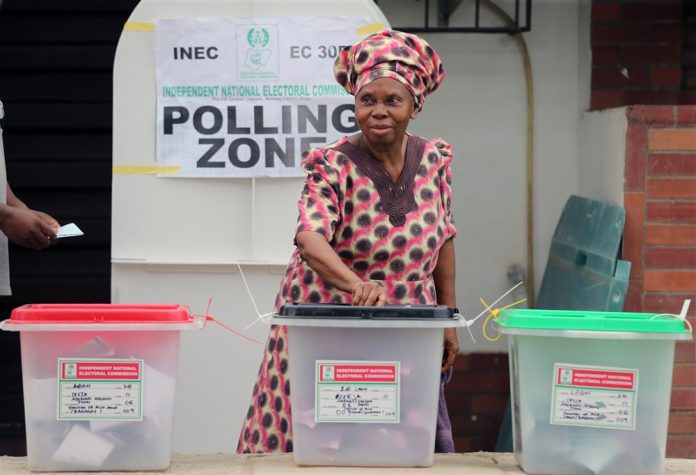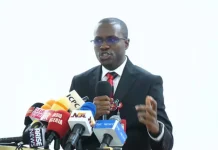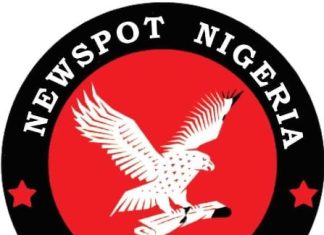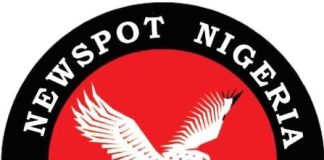Caption:
A woman casts her ballot at a polling station during the general elections, in the Ikeja district of Lagos, Nigeria, February 25, 2023. EPA-EFE/AKINTUNDE AKINLEYE
The IPI global network expresses concern after more than three dozen attacks on journalists were reported in the context of Nigeria’s recent presidential, legislative, and governorship elections, and calls on the Nigerian authorities to hold those responsible to account.
Nigeria held presidential and National Assembly elections on February 25 and governorship and House of Assembly elections on March 18. The elections were considered to be among the most competitive in Nigeria’s modern political era. The March 18 vote was previously scheduled for March 11, but was postponed to allow the Independent National Electoral Commission (INEC) to reconfigure the Bimodal Voter Accreditation System (BVAS).
The February elections were hailed as a success despite some technical discrepancies and pockets of violence in a country entangled with rampant insecurity issues. Reports said that the gubernatorial election witnessed more violence and intimidation despite police warning political thugs and hoodlums.
Spate of attacks on the press
The International Press Center (IPC) of Nigeria, one of the leading local press freedom groups among several local civil society organizations and international elections observation missions, monitored both the February 25 and March 18 elections.
Following the February 25 elections, the IPC released a report saying it had recorded 41 incidents of press freedom violations. The incidents targeted more than 57 journalists and other media professionals. The recent report of IPC on the gubernatorial elections also highlighted overzealous political sympathizers, hoodlums and security forces as perpetrators of several incidents of assaults on press freedom and journalists. At least seven journalists and media workers of three media houses, AIT, Arise TV News, and News Agency of Nigeria were reportedly attacked around the March 18 elections in the federal city of Lagos, Ogun and Rivers states.
The series of attacks, including denial of access and intimidation of journalists during the two sessions of elections, by both state security forces and political party supporters, are alarming and cast a further grim shadow on the press freedom situation in Nigeria.
In an interview with IPI prior to the elections, IPI Nigeria National Committee Chair Musikilu Mojeed raised doubts about the concern of Nigerian politicians for the safety of journalists. In this regard, the government of President-elect Bola Tinubu and authorities-elect at the state level must uproot this negative perception and address press freedom concerns in Nigeria as part of the consolidation of the country’s democracy and rule of law.
“The Nigerian government must investigate all violations and hold perpetrators accountable. Western embassies in Nigeria trying to punish election riggers with visa denials are encouraged to add abusers of journalists’ rights to their lists. They should be denied visas as well’’, Mojeed said this week.
He added: “the incoming government must immediately take steps to create a better operating environment for journalists and the media. All oppressive, media inhibiting legislation must urgently be amended or scrapped.”
Social media kept open
While Nigeria restricted access to Twitter for several months in 2021 after the company removed a post by President Muhammadu Buhari. However, Nigeria did not block the internet and social media platforms during the elections.
IPI has been monitoring the media landscape in Nigeria over the past year and has raised concerns about the safety of journalists in the country. On several occasions IPI has called on the authorities, security forces and political party leaders to ensure that journalists are safe and protected while conducting their public information and watchdog roles, enabling the public discussion on critical issues.
“Journalists and other media workers play a critical role in promoting access to information by the citizens which enables them to meaningfully participate in democratic processes”, IPI Deputy Director Scott Griffen said. “The attacks on journalists and media workers recorded during Nigeria’s elections underscore the need for more work to be done on press freedom to consolidate democracy in Africa’s most populous country.”
“The incoming government must show the political will to improve journalist safety and press freedom as one of the key pillars for democratic gains and consolidation of the rule of law. As a first step, the administration of president-elect Bola Tinubu must ensure that attacks on journalists in the context of the recent elections are investigated and those responsible are held to account. We call on the new government to work with all stakeholders, particularly security forces, political party leaders and political party supporters, as well as the media and civil society community itself, to address the continued threats to the safety of journalists in Nigeria, including in relation to the coverage of politics.”
Share your story or advertise with us: Whatsapp: +2347068606071 Email: info@newspotng.com










 NEWSPOT NIGERIA DAILY PULSE
NEWSPOT NIGERIA DAILY PULSE  May 13, 2025
May 13, 2025






